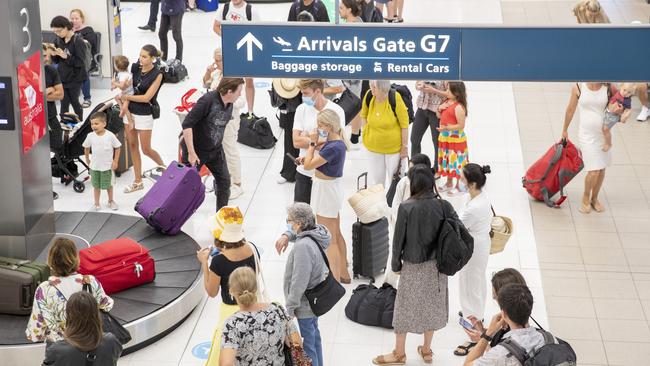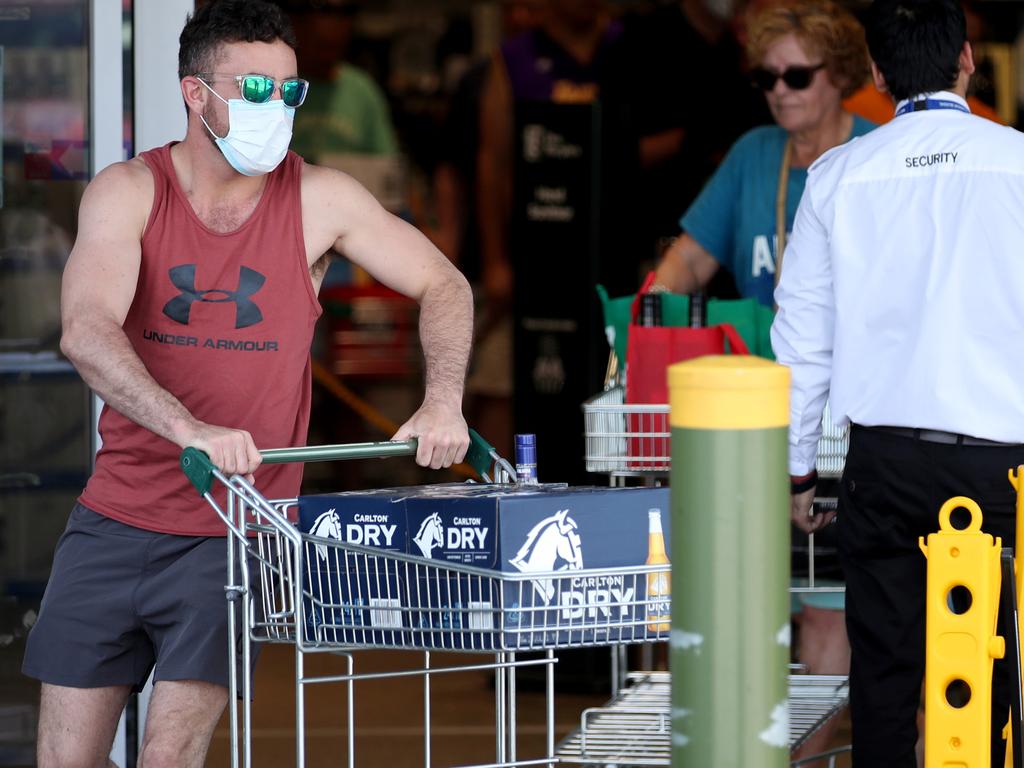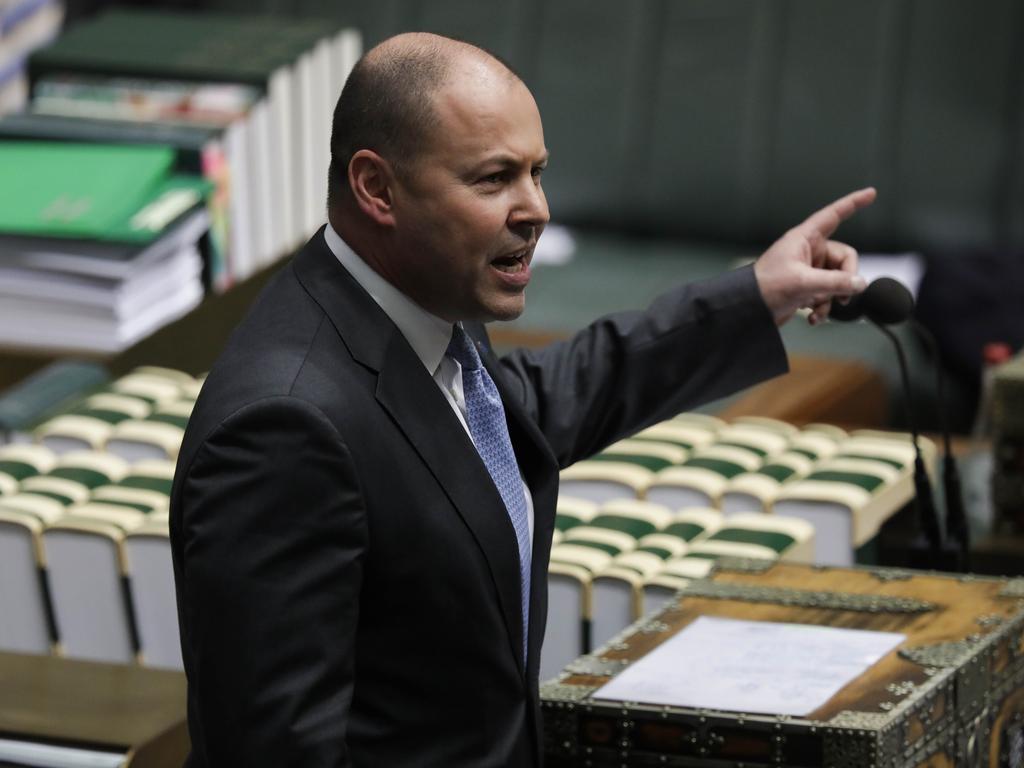
South Australia’s six-day lockdown may be an over-reaction in the way it is so extreme — no outdoor exercise, heavier restrictions on restaurants and cafes than even at the worst of Victoria’s lockdown. But there is a serious case for what South Australia is doing.
The states that have had the fewest cases — Western Australia, Queensland, SA and Tasmania — have not been exercising their test, trace and isolate muscles. When you are dealing with life and death situations, it is generally a very wise maxim to have a healthy respect for your own incompetence.
NSW has been the gold standard but even in NSW things have been close run and there is no guarantee of success. If SA endures six miserable days, but as a result avoids the hundreds of deaths and more than three months of social and economic misery that Victoria suffered when it messed up hotel quarantine, that’s a fair bargain.
One of the missing ingredients has been local lockdowns. At least in Victoria, Melbourne was contained separately from the rest of the state, which was allowed to go about its business.
Commentators talk airily about learning to “live with” the virus. Political leaders who want to live with the virus can easily end up dying politically from the virus. But living with the virus has much less utility than it seems. Donald Trump lost almost entirely because he mishandled the virus. His key failures were twofold. First, he would not lead any effort at social distancing. Those nations that most successfully “live with” the virus, such as Taiwan and South Korea, practice critical social distancing, especially mask wearing.
Trump’s other failing was to desire at every point to open the economy rather than kill the virus. Trump was not motivated by bad faith or malice but, because of his attachment to the economy, his judgment was wrong. There are good studies to show a society suffers pretty much the same economic downturn whether it locks down temporarily or not, because if the infections become too widespread people stop socialising, going to work or spending whether the state tells them to or not.
One of the big problems in the US has been that as one state or city gets things a bit under control and tries to open up in a cautious way, the state next door, or even farther away, is not sufficiently on the ball, infections soar and their travellers come and reinfect the state that thought it had things under control.
One of the hardest things to understand about the virus is that it does not go away without a vaccine. Every time the virus lets up a little bit somewhere, commentators of a certain disposition rush to say it’s over, it has been defeated. Thus we had all that ridiculous talk about herd immunity being achieved at 20 per cent, or cities such as London, New York or Paris having achieved herd immunity in the first wave, or the even more absurd blather about the virus being no worse than a bad flu or cold.
The US has 12 million infections, a quarter of a million dead, 1300 deaths a day and more than 100,000 new infections daily. States, whether Republican or Democrat ruled, are imposing new restrictions. Hospital systems are under acute stress. Elective surgery has been cancelled or postponed as hospitals cannot cope with the COVID-19 load. This is not hysteria; it’s reality.
The US has had such difficulty fighting the virus effectively in part because it cannot control internal travel and in part because it is extremely bad at social distancing. This is itself partly because some sections of the community have decided bizarrely to conceive of straightforward emergency health measures, such as mask wearing, as an assault on civil liberties.
The situation in parts of western Europe is as bad as it is in the US. One reason so much of the discussion in Australia — though not the policy — has been so ridiculous is because our experience of the virus has been so relatively light. The Morrison government deserves great credit for this but the key to our success has been that we are an isolated island. And our state capitals are themselves isolated conurbations.
One legitimate outcome of the trade-off between the economy and health is to get the social and economic benefits of internal opening up while stopping almost all international travel. It might need to last a long time because even if a vaccine is available in the first half of next year, it will take at least another six to 12 months for most of us to be vaccinated. Even then, we should accept visitors only from equally well vaccinated countries and they should undergo two weeks’ hotel quarantine.
International students are mostly wonderful kids and it’s good to have them, but not now. They are young and healthy, so if they bring or get an infection they are likely to be asymptomatic. They have limited health insurance and are notoriously reluctant to go to the doctor for minor ailments. They often live two or more to a room and would find it difficult to isolate if necessary. They are often dependent on casual work.
Permanent migrants, on the other hand, can easily do two weeks in a hotel or government reception centre before embarking on their new lives. They qualify for Medicare, typically bring large amounts of capital, are highly educated and won’t need or desire to travel out of Australia for a long time after they arrive.
Strategic weight is almost entirely a consequence of economic weight. In these severely strategically challenging times we need to be bigger and stronger. The chief security damage of the virus is that it cuts our population growth. We should address that as a priority.





One of the worst effects of COVID-19 on Australia is the cut to permanent immigrants. Our own citizens returning should be our top priority. Second only to them, permanent immigrants are the international travellers we should prioritise. They are the most valuable travellers to Australia and they should come way, way above international students, much as we love the students. It’s probably not possible, certainly not responsible, to welcome students in significant numbers for another 12 months at least.